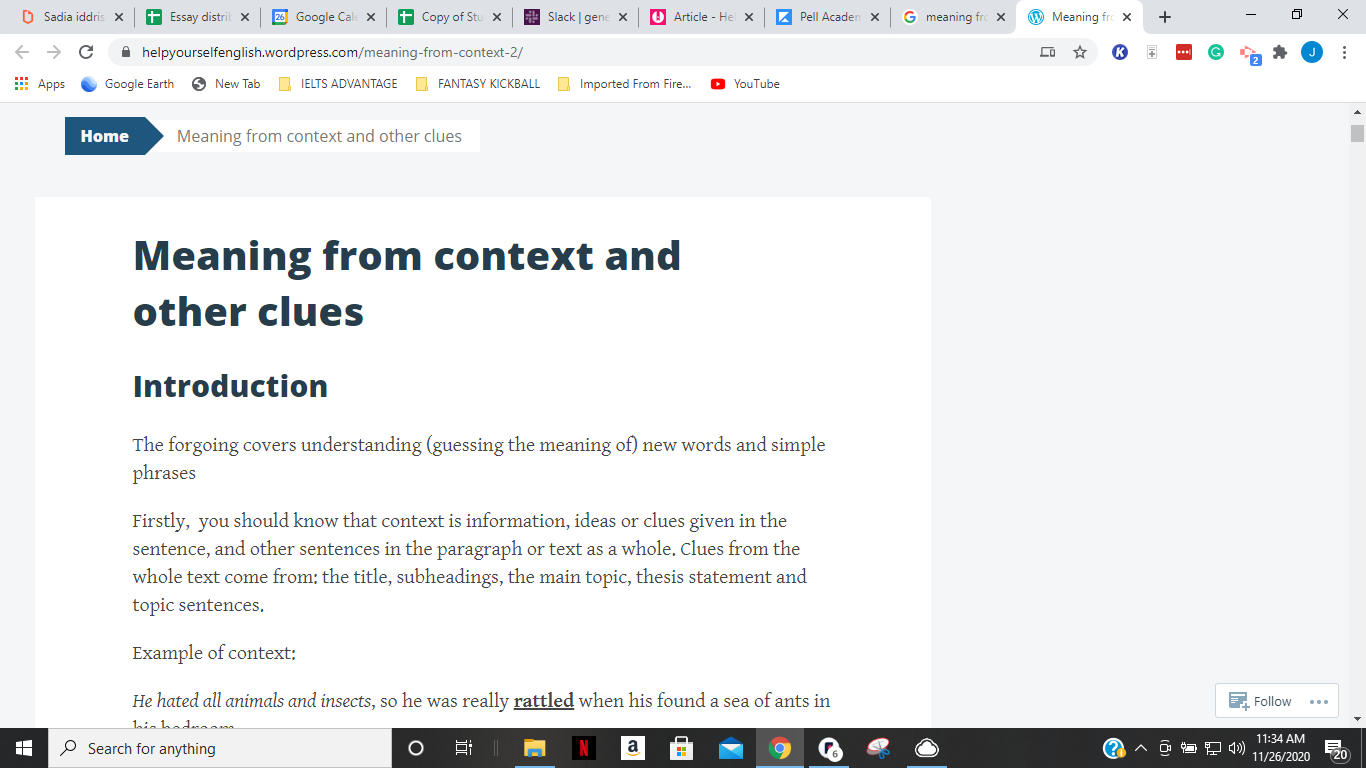What can I do when I encounter vocabulary that I can't understand while reading?
In both the Listening and Reading tests, it's normal for students to encounter vocabulary that they are not familiar with. This must be expected; however, as these tests are designed in such a way as to separate the Band 7s from the Band 8s and 9s.
There's an important skill that's being tested when this happens, and it's the skill of being able to guess the meaning of a word from the context in which it is used.
Here's an example:
"Rather than being impressed with the speaker's intelligence, most of the audience regarded him as gormless at best."
Now, "gormless" is a word that most students wouldn't understand initially, but if a student takes a closer look at some clues in that sentence, they can sure get a pretty good idea of what it means. Here are some clues, and how they can be interpreted:
- What word form is "gormless"? Well, it's obviously an adjective.
- "Rather" here is being used to show contrast. So, the first clause is basically saying that the audience was NOT impressed with the intelligence of the speaker, so the second clause must be stating the opposite. So, if the audience did not consider him to be intelligent, what must the meaning of "gormless" be? Well, the opposite of "intelligent" is...unintelligent, or stupid!
If you practice this skill, you will find it very helpful in both the reading and listening tests, as well as your future daily life. Here's a nice resource that will give you greater detail.

